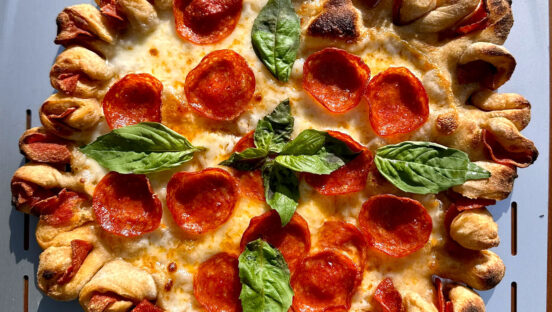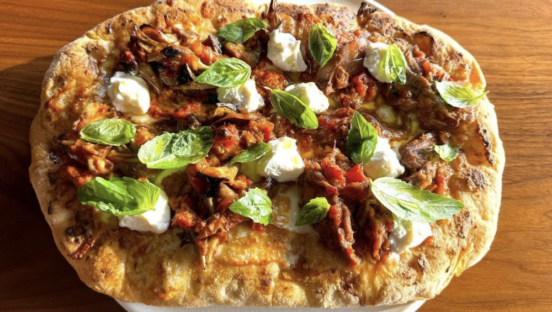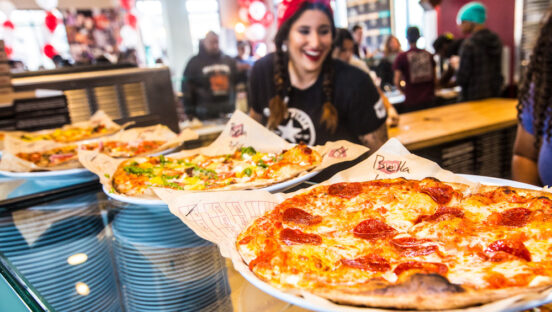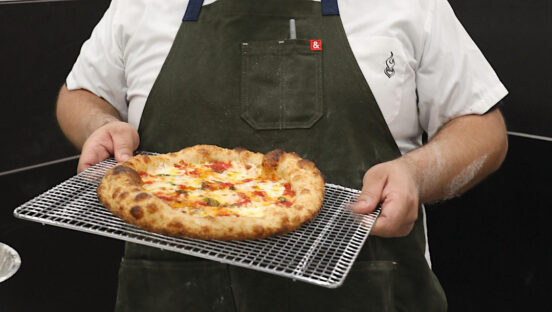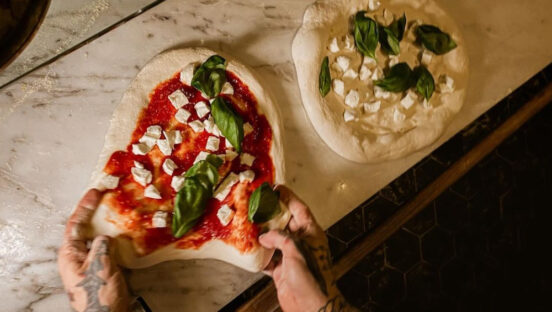By Charlie Pogacar
I’m going to tell you a secret.
One of the most-read stories in the history of PMQ’s website is about a brand called Zalat Pizza and its founder and CEO, Khanh Nguyen. The story was published in March 2022 and details Nguyen’s unlikely journey, from escaping Vietnam alongside his family in 1975 to becoming a lawyer and, finally, a restaurateur with a budding pizza brand.
Early-Bird Registration: Hear Nguyen speak at the Pizza Power Forum
You can see why Nguyen is a compelling character, right? What I find most interesting about Nguyen, though, has little to do with any of that. Nguyen has a lofty goal for Zalat: he recently told me that he wants Zalat Pizza to become one of the top 5 or 10 pizza brands in the country. Founded in 2015, Zalat has already grown to 30 locations, all of them in Texas. But becoming even a top 10 pizza brand would mean Zalat has to add at least 400 locations when it’s all said and done. On top of that, a competing goal of Nguyen’s, one might argue, is to never sacrifice on the quality of his food, no matter how large the brand grows. He will be the first to tell you that few brands, if any, brands have accomplished this—which is why the endeavor is so fascinating to me.
I recently chatted with Nguyen about the tension between those two things: scaling and continuing to serve great pizza. Before we get to that Q&A, I’d like to add that Nguyen will be a featured speaker at our upcoming Pizza Power Forum, which will take place in Atlanta Sept. 4 and 5. Nguyen will be featured on two different panels that he is eminently qualified to speak on: “Scaling With Integrity: How to Maintain Your Brand’s Standards During Growth,” and “Pizza and Beyond: Developing a Menu That Performs.” Entry to our event in Atlanta is on sale now for the early-bird rate of $100—that will give you access to eight different educational chats and panels, as well as a slew of networking opportunities. We hope you’ll join us.
PMQ: Zalat Pizza was founded in 2015—how much growth has the brand seen since then?
Nguyen: Since opening in April 2015, our journey has been remarkable. By the end of 2019, we had expanded to six locations, and now, we’ve grown to 30 locations.
PMQ: Was the plan to scale from the very beginning? And how much did it frighten you to scale and lose the essence of what made your brand great?
Nguyen: Yes, the plan was to build a model that could scale. I wanted to design a business model that would allow us to scale while maintaining our best-of-class quality. The journey from opening a Vietnamese restaurant on a whim [in 2012] to developing a scalable pizza concept was filled with learning and adaptation, with an emphasis on quality and consistency.

PMQ: How did you address the challenge of maintaining your brand’s unique identity as you grew?
Nguyen: When we were designing the pizza, I didn’t really have a timeline when we started building out the concept, trying to make great dough and sauce recipes. The plan was to do that until we got it to the point where I thought we reached a great product, which took us six months.
During those six months, I also spent lots of time designing the business model. I gave a lot of thought to how restaurant chains seem to always lose their way on food quality. Everybody goes down the same path: As you scale, you start making changes that slowly step down the quality that made your first restaurant successful, and you end up with some version of mediocre food. Even if a chain has good food, there’s always an asterisk when people talk about you. They say, “it’s great food…. for a chain.”
I thought long and hard about why that is. I thought that it can’t just be money—those brands have plenty of that—and I tried to strategize our way around that issue: What systems can we put in place to ensure that we always keep our pizzas at a high level as we scale?

PMQ: So what does that look like in practice? If you look around and see other brands failing to upkeep quality as they scale, what gives you confidence Zalat can do it?
Nguyen: To me it’s so obvious, but I think people lose sight of the most simple thing as they get bigger. As a restaurant group, it really just comes down to one thing: that bite of food that goes into the customer’s mouth. Just sit down and eat your own product! You take one bite and ten seconds later you know if you still have quality or you don’t—it’s really just making sure your team isn’t in there trying to talk themselves into thinking something is better than it is. You have to be absolutely religious about asking yourself, “How does this taste? If you had this pizza, would you come back?”
Typically, organizations have a corporate chef. The chef designs a new item and puts it out for tasting for a small group of people. Those people know it will crush the chef’s ego if you say it’s not good enough. It becomes very difficult to give true and honest feedback. This is why we do not want anyone’s ego attached to food design. We design our pizzas collaboratively without anyone being assigned the duty of being a corporate chef. We just grab whoever is available—it could be somebody from HR that day—and if you have enough palates and folks in the room, you can design amazing tasting pizzas.
PMQ: Does Zalat have growth goals? Where do you see this brand in the future?
Nguyen: We have a long-term goal. We’ll have to wait to see how long it takes us to get there. We look at our economics, business model, we don’t see any reason why we can’t be a national player. Our product is great, it’s scalable and our business model is solid. We’re still in the early stages, tinkering with how to market the brand and how to expand outside of our state.
Fundamentally, we’ve laid down a great foundation for growth. I don’t see any reason we can’t be in the top 10 or top 5 in the country in terms of numbers. We’re cranking out massive numbers and we’ve been able to improve on our quality as we’ve gone along instead of trying to hang on with fingernails to the original product. So that bodes well for our future.







